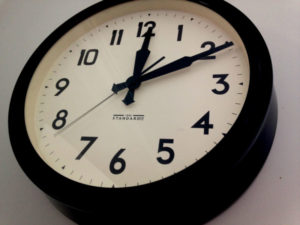The Supreme Court of New Jersey recently agreed to consider Dunbar Homes, Inc. v. The Zoning Board of Adjustment of the Township of Franklin. The case involves when a submission to the planning board should be considered an “application for development” that triggers the “time of application rule.”

Time of Application Rule
The time of application rule applies to municipal development regulations. It provides:
Notwithstanding any provision of law to the contrary, those development regulations which are in effect on the date of submission of an application for development shall govern the review of that application for development and any decision made with regard to that application for development. Any provisions of an ordinance, except those relating to health and public safety, that are adopted subsequent to the date of submission of an application for development, shall not be applicable to that application for development.
Under the prior “time of decision” rule, the zoning regulations in effect at the time the planning board or zoning board decided the application were applied. The time of application rule, set forth in N.J.S.A. 40:55D- 10.5, was enacted to address “situations in which a developer would spend time and money pursuing an application, only to have a municipality change the zoning to the developer’s detriment while the application was pending.”
Appellate Division Decisions
Dunbar owns an existing garden apartment complex with 276 units in the Township’s General Business (GB) zone. Dunbar also owns 6.93 acres adjacent to this complex and planned to seek approval for fifty-five additional apartments on that property. Without any change in the ordinance, Dunbar was required to seek a conditional use variance pursuant to N.J.S.A. 40:55D-70(d)(3) because the size of the property was less than the minimum ten acres required for garden apartments as a conditional use in that zone.
On July 16, 2013, the Township amended its ordinance to eliminate garden apartments as a conditional use in that zone. On the day before the amendment was adopted, Dunbar filed a submission with the Planning Board seeking site plan approval and a (d)(3) conditional use variance for its proposed garden apartment project in the GB zone.
Defendants Township of Franklin and the Zoning Board of Adjustment (collectively, the Township) maintain that the time of application statute does not apply until the application for development is complete. Conversely, plaintiff Dunbar Homes, Inc. (Dunbar) argues “the submission of a substantial, bona-fide application which does not constitute a sham, and one which gives the Township sufficient notice of the application and an understanding of the development being proposed by the applicant, is sufficient” for the protection of the time of application statute.
The Appellate Division held that, although the submission need not be “deemed complete” pursuant to N.J.S.A. 40:55D-10.3, the plain language of relevant provisions of the MLUL requires a submission to include the “application form and all accompanying documents required by ordinance for approval” for the time of application rule to apply.
Issues Before the NJ Supreme Court
The Supreme Court of New Jersey agreed to consider the following question:
When is a submission to the planning board considered an “application for development” that triggers the “time of application rule,” which states that the regulations in effect on the date of submission of an application for development govern the review of that application?
The Court has not yet scheduled oral arguments in Dunbar Homes, Inc. v. The Zoning Board of Adjustment of the Township of Franklin. We will continue to track the case and post updates as they become available.
For more information about the case or the legal issues involved, we encourage you to contact a member of Scarinci Hollenbeck’s Government Law Group.
